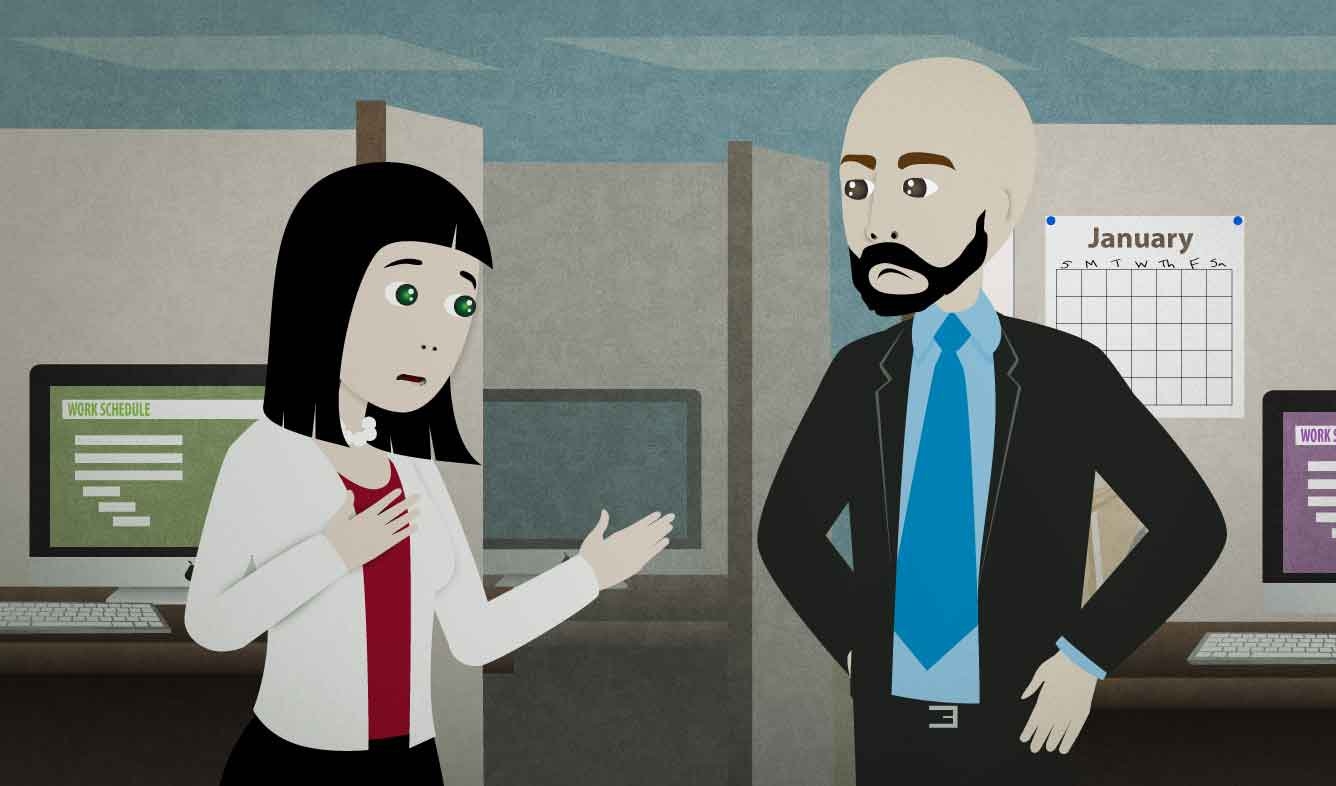“I take full responsibility.”
You're the manager of a small team of programmers. The latest version of your software had a bug which made it insecure. You had to tell the company's CEO about the mistake. After describing the problem, you apologize and say this.
I take full responsibility.
Want Video and Sound? Follow us on YouTube

take responsibility for (something)
The phrase "take responsibility" means to accept the negative consequences of a mistake. In other words, if there's a problem, you either fix it yourself or
"Take responsibility" is used in the following ways:
- take responsibility for (oneself)
You've got to start to take responsibility for yourself!
- take responsibility for (one's actions)
You need to learn to take responsibility for your own mistakes.
- take responsibility for (doing something wrong)
I think that, if anyone, Amy should be the one to take responsibility for losing the account.
- take full responsibility
Please forgive me. I take full responsibility.
I take full responsibility.
This is a formal phrase that you can use to apologize for a mistake or a failure. It means that only you should be blamed, not anyone else.
You might use this phrase if you made a bad decision or messed something up. Or you might say "I take full responsibility" if you're in charge of a team, and you want to protect the people who actually caused the failure.
